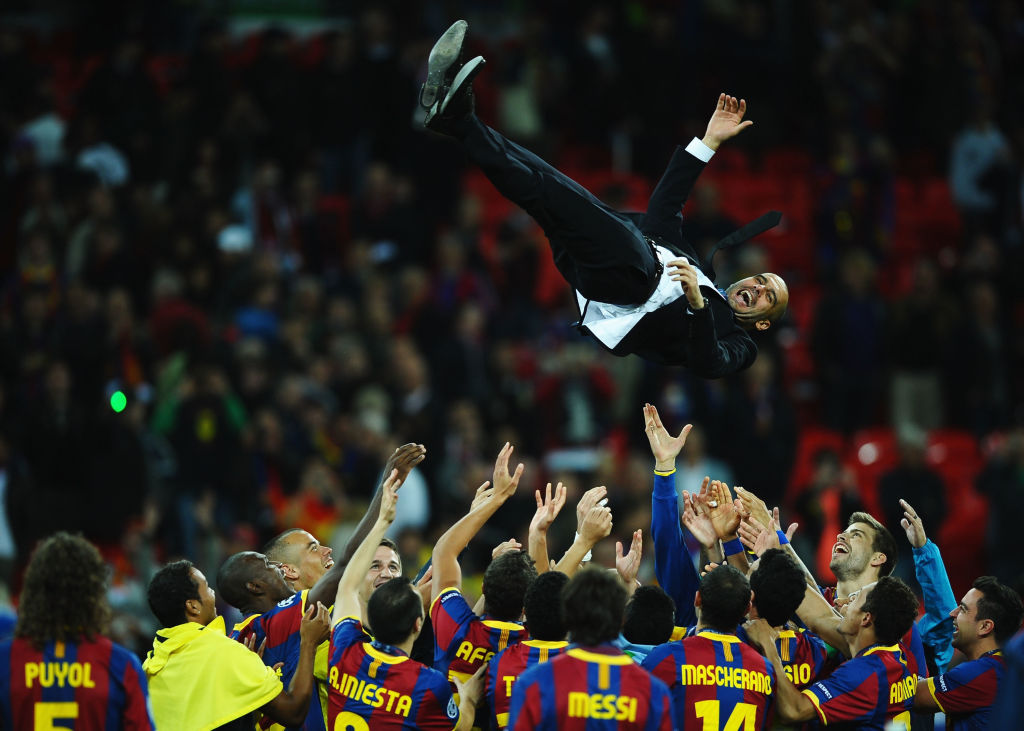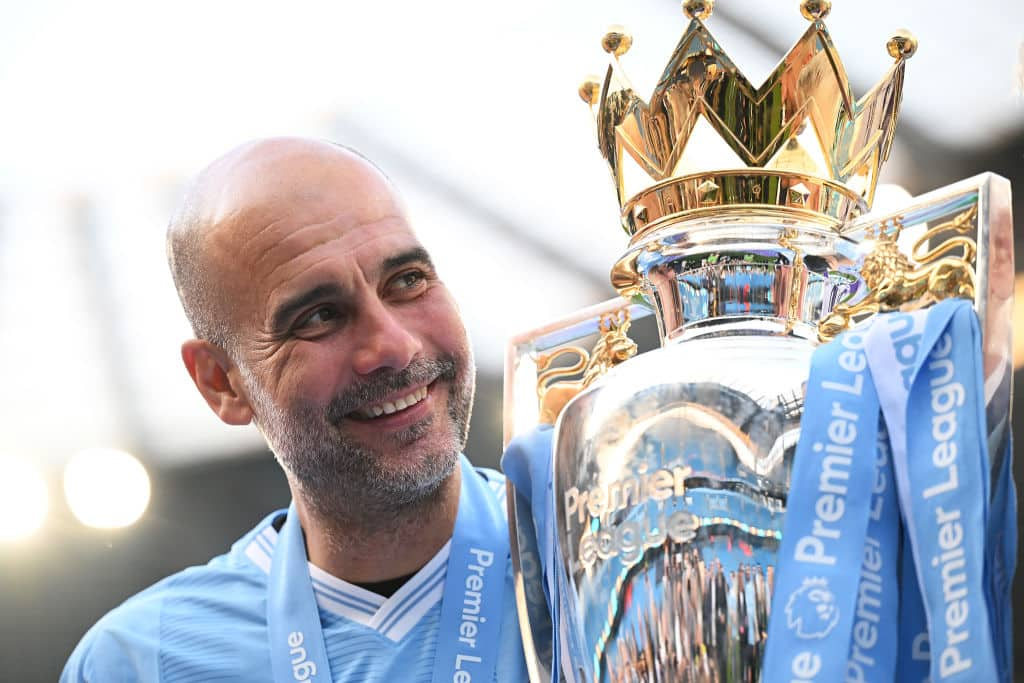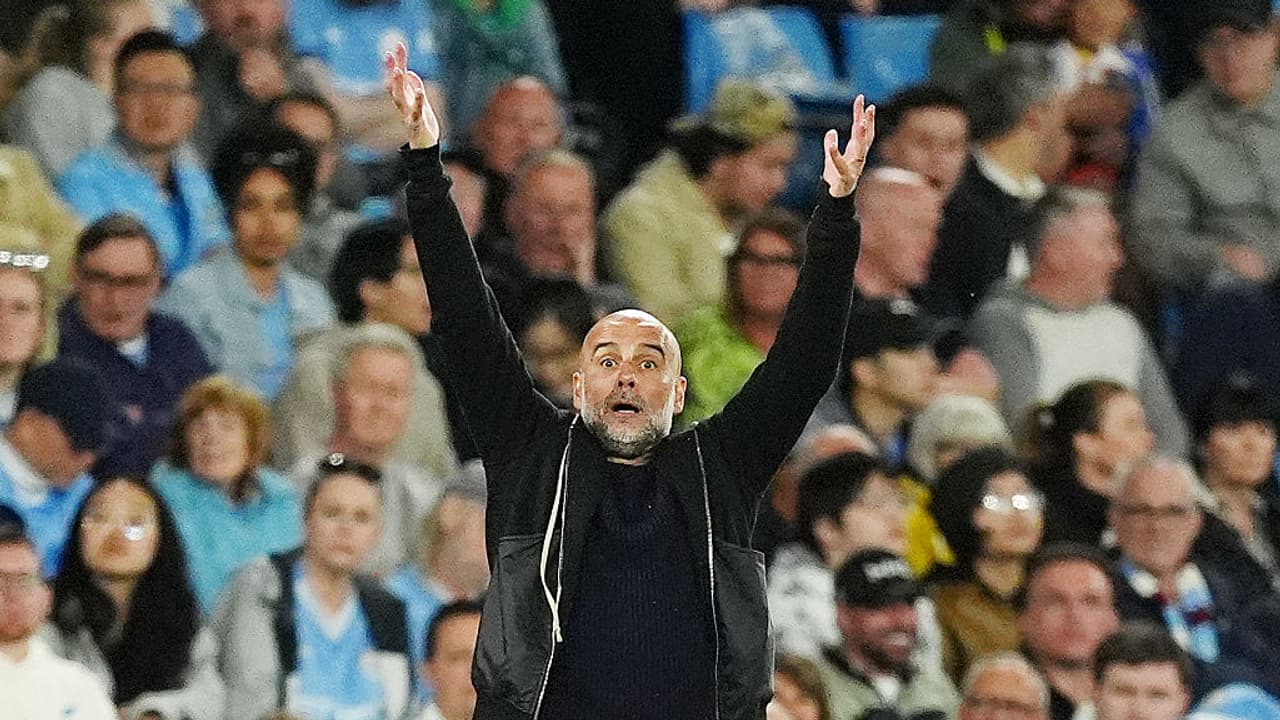Pep Guardiola confirms he will take a break from football after his Manchester City tenure ends, though he remains undecided on the timing of his departure.
Pep Guardiola has once again stirred discussions about his future in football, revealing that he will take a break from management when his time at Manchester City comes to an end. Though the Spaniard has not decided exactly when that will be, he was clear that a sabbatical is part of his post-City plans.

Speaking to Sky Sports, Guardiola clarified his position amid speculation sparked by an earlier ESPN Brasil interview, in which he appeared to suggest that he might leave City when his current contract ends in June 2027.
"I didn't say I'm leaving now, or the end of season or the end of contract," he told Sky Sports before City's Premier League match against Wolves. “I said when I finish my time here, be it one, two, three, four, five years I will take a break. I won't retire but I will take a break. What I am saying is when I am finished here I will take a break.”
Guardiola, 54, is already the longest-serving manager in Manchester City’s modern history, and by 2027, he will have completed 11 years at the Etihad Stadium — a staggering spell in the high-pressure world of elite football. During that time, he has transformed the club into a domestic and European powerhouse, lifting six Premier League titles, multiple domestic cups, and, most notably, clinching the club’s first Champions League trophy as part of a historic Treble in the 2022–23 season.
A Career of Constant Evolution
The Catalan tactician has never been one to linger in comfort. After a trophy-laden spell at Barcelona (2008–2012) where he revolutionized modern football with his tiki-taka philosophy and won 14 major honours — including two Champions League titles — Guardiola took a self-imposed sabbatical, stepping away from the sport for a year.
He later returned to the touchline with Bayern Munich (2013–2016), where he added three Bundesliga titles to his CV and one FIFA Club World Cup, before embarking on his Manchester City chapter.
Over the past decade, Guardiola’s teams have come to define an era — both in terms of dominance and aesthetic. His meticulous attention to detail, positional play philosophy, and high-intensity pressing have made him one of the most influential managers in football history.

Why a Break Makes Sense
Even the greatest minds in sport are not immune to burnout. The demands of modern management — from tactical evolution and media scrutiny to man-management and the sheer volume of fixtures — are relentless. Guardiola has always been a deeply intense figure on the touchline and off it, and he has previously acknowledged the toll that the job takes.
"In the careers of coaches, there are good and bad ones, the important thing is that the good ones are remembered for longer," he said. "There are new challenges as a coach, I don't know what will happen in the future and in the end that doesn't matter."
"This has been a year of great learning for me personally," he added. "I knew there would be a moment when we would fall, but we fell a lot."
This season, City have failed to maintain their usual standards, currently sitting third in the Premier League table and battling to secure a Champions League spot. The club still has a chance to win silverware in the form of the FA Cup final against Crystal Palace on May 17, but by City’s own high standards, it has been a turbulent campaign.
Taking a break would not only allow Guardiola time to recharge but also give him the space to reflect, recalibrate, and decide on the next chapter of his storied career. His previous sabbatical between Barcelona and Bayern was productive, allowing him to evolve his tactical approach and embrace new challenges with renewed vigor.

What Comes Next?
Whether or not fans love or loathe him, Guardiola's impact on football is undeniable. His sides have redefined standards, raised expectations, and influenced a generation of coaches worldwide. He himself seems philosophical about legacy.
"How I want to be remembered, I don't know," Guardiola said. “I want people to remember me however they want.”
“All coaches want to win so we can have a memorable job, but I believe that the fans of Barcelona, Bayern Munich and City had fun watching my teams play. I don't think we should ever live thinking about whether we're going to be remembered. When we die, our families cry for two or three days and then that's it - you're forgotten. In the careers of coaches, there are good and bad ones, the important thing is that the good ones are remembered for longer,” he added.
Given the weight of his legacy, Guardiola has earned the right to step back. A break doesn’t signal the end — just a pause before another evolution, another adventure. For a man who has reshaped the game wherever he’s gone, a sabbatical might just be the next step in ensuring he continues to do so.


